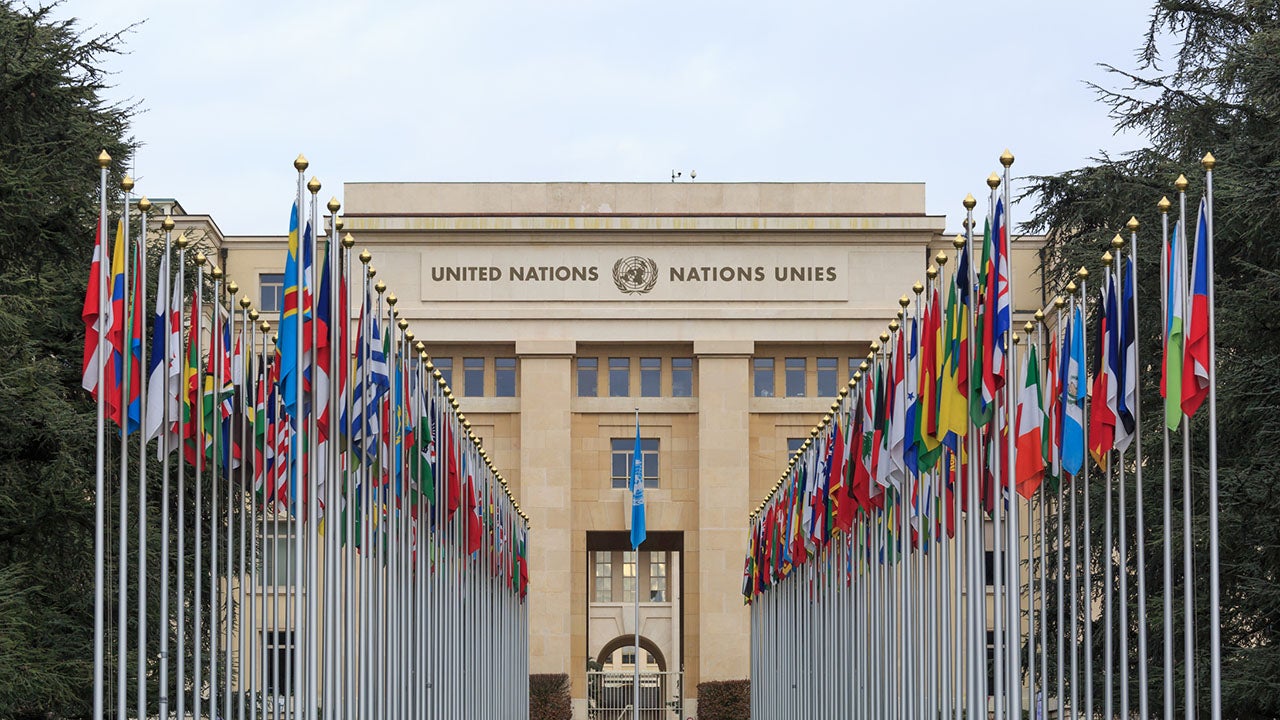Daniel Mitov, Bulgaria’s former Minister of Foreign Affairs, and Marwan Muasher, Jordan’s former foreign minister, recently joined the Aspen Ministers Forum Fireside Chat series. Their dialogue provides an excellent opportunity to reflect on how a well-functioning democracy emerges.
Bulgaria was part of the “third wave” of democracy that swept the globe at the end of the 20th century. One part of the globe seemingly immune to this wave was the Middle East, which belatedly experienced its own democratic uprisings with the 2011 Arab Spring.
But, as Mitov and Muasher noted, optimism quickly turned to pessimism as once promising third-wave democracies in Eastern Europe began backsliding and Tunisia emerged as the only democracy from the Arab Spring.
However, what the panelists don’t address is that this cycle of optimism and pessimism they have lived through is not new. Such cycles accompanied previous periods of democratic expansion and subsequent backsliding, from the late 1700s through the 20th century. It is important to remember that successful democracies are unusual and generally emerge only at the end of a long, arduous process with missteps and failures along the way. In particular, what Muasher notes about his own region—that its people have been more successful in rising up against dictatorships than in building stable democracies (they are, as he puts it better at “saying no than yes”)—is in fact the historical norm.
Consider Europe, the region I study, where the modern struggle for democracy began with the French Revolution. Like the fall of communism and the 2011 Arab Spring, the collapse of the French monarchy in 1789 was greeted with jubilation. William Wordsworth remembered it as a time when “all Europe was thrilled with joy.” But disappointment followed. Soon after the republic was declared in 1793, Europe’s first modern democracy descended into a Reign of Terror. By 1799, an exhausted France submitted to a coup by Napoleon Bonaparte. Political instability wracked France throughout the 19th century. In 1848, another transition to democracy occurred but, within a year, the populist authoritarian Louis-Napoleon Bonaparte (the previous Napoleon’s nephew) seized power and began gutting democratic institutions. His regime collapsed in 1870, giving way to another tumultuous democratic transition. France’s third try at democracy was more successful than the previous two, but many citizens neither accepted its legitimacy nor played by democratic “rules of the game.” Indeed, it was only after the formation of the Fifth Republic in 1958, that France achieved democratic stability.
Other European countries followed similar political paths. Italy’s first experiment with democracy was short, characterized by disorder and violence, and collapsed into fascism. Germany emerged in 1871 with a semi-authoritarian regime and democratized only following World War I. From its birth, the Weimar Republic was plagued by extremism and violence; it collapsed into National Socialism after a decade and a half. Spain underwent numerous political transitions, military interventions, and civil wars during the 19th and early 20th centuries. After a failed democratic experiment in the 1930s, Spain experienced a civil war that killed hundreds of thousands and then underwent decades of dictatorship.
Liberal democracy, it is important to remember, only became the norm in Western Europe after 1945—more than 150 years after the French Revolution. And democracy’s postwar success in Western Europe required the creation of new domestic, regional, and international orders from social-democratic welfare states to NATO to the European Union.
That countries that have only recently made transitions to democracy have encountered trouble should sadden but not surprise us. History teaches us that breaking down the institutions and political norms built up under long years of dictatorship is slow, difficult work. Constructing new, liberal democratic ones is even harder.
Real democratic progress has been slow and imperfect, characterized by turmoil and even violence. It was only after many generations and attempts that most countries were able to build well-functioning liberal democracies. This gives us a different lens through which to view developments in Mitov and Muasher’s home regions of Eastern Europe and the Middle East. The problems democracy faces in these regions are more the norm than the exception and reflect the inherent difficulty and complexity of building truly liberal democratic regimes. Getting rid of authoritarianism is a long and nasty process. Still, we can feel encouraged that in Eastern Europe and Tunisia that process has finally begun.
Sheri Berman is a professor of political science at Barnard College, Columbia University. Her latest book is Democracy and Dictatorship in Europe: From the Ancien Régime to the Present Day.
The views and opinions expressed in this article do not necessarily reflect those of the Aspen Institute.

